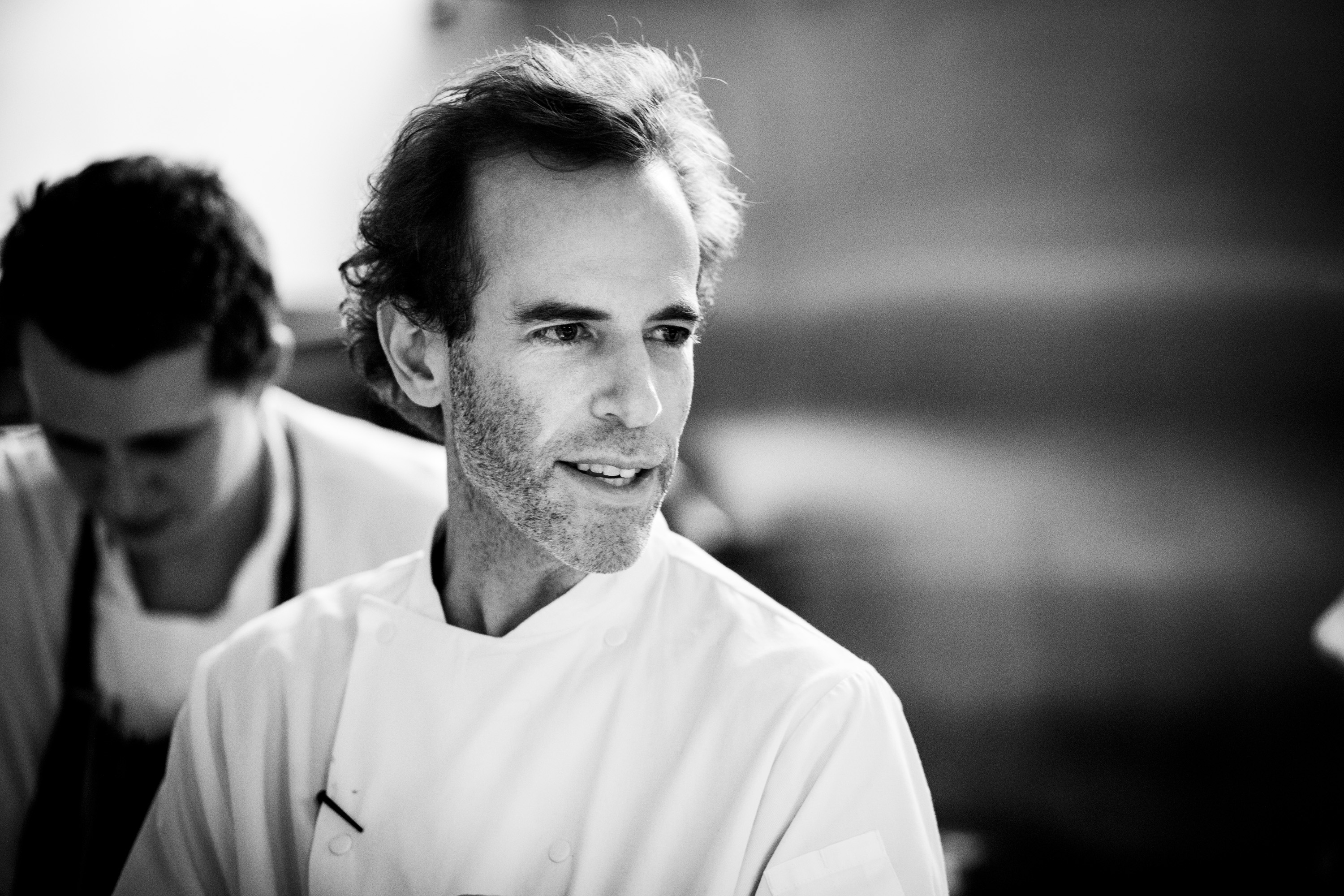Nobody knows more about the farm-to-table movement than Dan Barber, largely due to the fact that he was one of the earliest advocates for sustainable cooking. The award-winning chef established Blue Hill, a popular restaurant in New York City, as well as Blue Hill at Stone Barns, located in upstate New York. Both restaurants bring Barber’s innovative sustainability and culinary techniques to life, and his philosophy has inspired millions around the globe.
I have been following Chef Barber’s career for several years, and I read his book, The Third Plate, in a single sitting. I was so intrigued by his thoughts on agriculture and how we can improve our food system, and if you pick it up, you won’t be able to put it down until you’ve finished the entire book. As you can imagine, I was ecstatic when I heard that we would be studying Chef Barber in school.
For my senior year, I chose to take a science class entitled Sustainable Living and Design, which focuses on the environment as its name suggests. A few weeks ago, we watched an episode of Chef’s Table, and Barber was featured in the portion we viewed that day. His quest to discover the best flavor captivated every student in the room, and if someone didn’t know about Dan Barber prior to this class, they immediately began following him on Instagram, where he often posts photos of delicious food.
Not only is Barber an incredible chef having won numerous awards, but he is also an author, frequent TED speaker, and in all of his spare time, also served on President Barack Obama’s Council on Physical Fitness, Sports, and Nutrition. He was also named one of Time Magazine’s 100 most influential people in 2009. I had the wonderful opportunity to interview Chef Barber earlier this week, and in his Zeitgeist interview, he dishes on everything from what inspired his passion for the environment to his advice for aspiring chefs. It is an honor to feature such a brilliant thinker and chef on my website.
First of all, when did you realize you wanted to become a chef? Have you always had a passion for food?
Cooking was always something I did on the side– maybe a little obsessively. What I really wanted to do, however, was write. After I graduated, I moved to California and got a job baking bread. I thought it would buy me some time before writing the great American novel. Neither of those things—the novel or the bread-baking—went very well (on the first day they let me mix, I forgot to salt 1,200 pounds of rosemary dough); but for whatever reason, I decided to keep cooking.
You were one of the first trailblazers in the farm-to-table movement. What initially inspired you to focus on sustainability?
Growing up, I spent every summer on Blue Hill Farm, my grandmother’s farm in the Berkshires. I loved being there—riding the tractor, haying the fields. In many ways those experiences are what inspired me to start cooking in the first place.
You are constantly questioning the status quo to implement positive change through cooking. Where does that curiosity come from?
I wish I could say it stems from something noble, but what really drives me is flavor. Fortunately, the quest for great-tasting food follows the same path as the one for great ecology. The right seed, the right farming practices—all of that goes into producing real jaw-dropping flavor.
You have accomplished so much throughout your career– everything from starting Blue Hill to being appointed by President Barack Obama to serve on the President’s Council on Physical Fitness, Sports, and Nutrition to writing a book. What accomplishment are you personally the most proud of thus far?
My first omelet that I made for my aunt, when I was nine years old.
What challenges did you encounter when you were first starting out as a chef, and how did you overcome them?
I remember telling my dad, reluctantly, “I want to be a chef.” There was a long pause, and then he said, “Son….why?” And I said the only thing that came to mind: “You know, I love food.” There was another pause and he said, “I love books, but I don’t read for a living.” That sounds flippant, but I think he knew that the life of a chef is a lot tougher than I imagined at the time (and he was right). I’m not exactly sure how I pushed past those punishing first few years. I think it was probably a fear of failing.
In your book, The Third Plate, you travel the world to learn more about farming, fishing, and breeding practices. What was your favorite experience from this journey?
I was lucky to have some incredible characters as my material. Chef Ángel Leon stands out as a favorite, only because he was so unpredictable—and so brilliant.
As a fan of yours, I was thrilled when I found out we were studying your work in my class called Sustainable Living and Design. What kinds of steps can the at-home or amateur cook take to practice sustainability?
If you can, subscribe to a CSA, community-supported agriculture, and challenge yourself to use every ingredient in the box. What better way to practice sustainability than letting the farmer dictate the menu?
Who are some of your professional role models or heroes? You’re certainly one of mine!
Alain Ducasse. He’s always celebrated the humble cuisine he was raised on, which flew in the face of the accepted definition of “gourmet”—and even what merited a place on a restaurant’s menu.
What piece of advice do you have for aspiring chefs?
Go to France!
What’s next for you?
I’m always trying to find more time to write. It took a decade for me to write The Third Plate, so I should probably get working on that next one soon.
